Discover Planetary Radio: Space Exploration, Astronomy and Science
Planetary Radio: Space Exploration, Astronomy and Science

Planetary Radio: Space Exploration, Astronomy and Science
Author: The Planetary Society
Subscribed: 13,260Played: 393,362Subscribe
Share
© 2025 The Planetary Society
Description
Planetary Radio brings you the human adventure across our Solar System and beyond. We visit each week with the scientists, engineers, leaders, advocates, and astronauts who are taking us across the final frontier. Regular features raise your space IQ while they put a smile on your face. Join host Sarah Al-Ahmed and Planetary Society colleagues including Bill Nye the Science Guy and Bruce Betts as they dive deep into space science and exploration. The monthly Space Policy Edition takes you inside the DC beltway where the future of the US space program hangs in the balance. Visit planetary.org/radio for an episode guide and much more.
1301 Episodes
Reverse
The 2025 International Mars Society Convention convened at the University of Southern California this October for three days of passionate discussion about humanity’s future on the red planet. Speakers explored science, policy, technology, AI, synthetic biology, and the long-term path toward becoming a multi-planet species. In this episode, Mat Kaplan, senior communications adviser at The Planetary Society, shares his conversations with speakers and guests at the Convention. We hear from Robert Zubrin, founder of The Mars Society, who delivered a fiery call to protect NASA’s science programs in the face of unprecedented budget cuts. Humphrey “Hoppy” Price, Chief Engineer for NASA’s Robotic Mars Exploration Program at the Jet Propulsion Laboratory, updates us on the future of Mars Sample Return and new mission architectures. Keynote speaker Dex Hunter-Torricke, a longtime communications leader for SpaceX, Meta, and other major tech organizations, reflects on AI’s promise and peril, and why Mars remains a beacon of hope for humanity’s future. Biologist and technologist Tiffany Vora, vice president for innovation partnerships at Explore Mars, and Erika DeBenedictis, biologist and founder of Pioneer Labs, reveal breakthroughs in synthetic biology and engineered microbes that could help future Martians survive. Steve Benner, chemist and founder of the Foundation for Applied Molecular Evolution (FfAME), revisits the Viking lander experiments and makes a provocative case that we may have found Martian life nearly 50 years ago. Architect Melodie Yashar, CEO of AENARA and a pioneer in 3D-printed habitat research, shares progress in additive construction on Earth and Mars. James Burk, executive director of The Mars Society, discusses advocacy, analog research stations, and the organization’s expanding international footprint. Finally, we meet Sasha, a 13-year-old presenter whose enthusiasm offers a bright glimpse of the next generation of explorers. We wrap up the show with What’s Up with Bruce Betts, chief scientist at The Planetary Society, with a discussion of perchlorates in the Martian soil. Discover more at: https://www.planetary.org/planetary-radio/2025-mars-society-conventionSee omnystudio.com/listener for privacy information.
NASA’s twin ESCAPADE spacecraft have finally launched on their journey to Mars. Designed to study how the solar wind interacts with Mars’ patchy magnetic fields and drives the loss of its atmosphere, ESCAPADE is NASA’s first dual-spacecraft mission to the Red Planet and a major milestone for the SIMPLEx program’s small, low-cost planetary explorers. The mission began its voyage aboard Blue Origin’s New Glenn rocket after several weather and space weather delays, marking the vehicle’s first science launch. We begin with Ari Koeppel, AAAS Science & Technology Policy Fellow and Space Policy Intern at The Planetary Society, who was at Cape Canaveral for the prelaunch activities. Ari shares what it was like to navigate repeated scrubs and even a powerful solar storm, along with the emotional experience of watching a spacecraft carrying an instrument he helped build begin its voyage to Mars. Next, we are joined by Dr. Rob Lillis, ESCAPADE’s Principal Investigator and Associate Director for Planetary Science at UC Berkeley’s Space Sciences Laboratory. Rob explains how ESCAPADE aims to unravel Mars’ complex space environment using two coordinated orbiters, why its measurements are key to understanding atmospheric escape, and how its innovative trajectory made the mission possible after the loss of its original rideshare opportunity. Finally, Dr. Bruce Betts, Chief Scientist of The Planetary Society, returns for What’s Up to talk about why Mars produces aurora even without a global magnetic dynamo. Discover more at: https://www.planetary.org/planetary-radio/2025-escapadeSee omnystudio.com/listener for privacy information.
This week on Planetary Radio, we’re sharing a special conversation from our friends at the Smart Girl Dumb Questions podcast. Host Nayeema Raza sits down with The Planetary Society’s Chief of Space Policy, Casey Dreier, to explore one of the most common questions in space exploration: Why does space matter, and is it really worth the cost? Casey breaks down how space exploration impacts daily life, from GPS and weather forecasting to cutting-edge technologies and scientific discoveries that could reshape our future. Together, Nayeema and Casey unpack the big ideas behind NASA’s ~$25 billion budget at a moment when U.S. national priorities are shifting. Stick around after the interview for a special U.S. Thanksgiving-week edition of What’s Up with Chief Scientist Bruce Betts. Discover more at: https://www.planetary.org/planetary-radio/2025-smart-girl-dumb-questionsSee omnystudio.com/listener for privacy information.
There was a time when almost everyone, from Alexander Graham Bell to the Wall Street Journal, believed there was a supremely intelligent civilization on Mars, one that was probably trying to talk to Earthlings. Most of this belief could be traced to an amateur astronomer and charismatic speaker named Percival Lowell. David Baron tells this story in “The Martians: The True Story of an Alien Craze that Captured Turn-of-the-Century America,” the product of seven years of research into this strange chapter of history. He shares many of the most surprising, fascinating, and very entertaining details, including much that had been lost to history, in this book club conversation with Mat Kaplan. Discover more at: https://www.planetary.org/planetary-radio/book-club-david-baronSee omnystudio.com/listener for privacy information.
When his filmmaking career stalled during the pandemic, Toby Lockerbie turned to the one place that had never stopped inspiring him: the Universe. With no background in visual effects, he taught himself the tools needed to transform complex space science into cinematic stories using everyday objects and beautifully crafted visuals to make the Cosmos feel human. His channel, Epic Spaceman, now reaches millions and has earned multiple Webby Awards for its innovative approach to visualizing scale, awe, and accessible science. This week on Planetary Radio, Toby joins host Sarah Al-Ahmed to discuss the creation of Epic Spaceman, how visual metaphors can change how we understand the Universe, and why awe remains one of the most powerful tools for science communication. Then we welcome Bruce Betts back for What’s Up, where we reflect on the end of the Japanese Aerospace Exploration Agency’s Akatsuki mission to Venus. Discover more at: https://www.planetary.org/planetary-radio/2025-epic-spacemanSee omnystudio.com/listener for privacy information.
The Planetary Society heads to TwitchCon 2025 to explore how scientists and educators use livestreaming to share the excitement of discovery. We begin with Moohoodles, one of Twitch’s pioneering space science streamers and co-host of the live panel “The Planetary Society: Space, Time, and You.” She explains how she built a thriving community around astrobiology and space exploration long before Twitch even had a Science & Technology category. Then we share moments from the panel, featuring a special video message from Bill Nye, CEO of The Planetary Society, and highlights of how livestreaming helps inspire new audiences to look up. At the Science & Technology Meet and Greet, Sharkg33k and Paleontologizing explain how their streams connect life on Earth to exploration beyond our planet. Later, Jack Kiraly, The Planetary Society’s Director of Government Relations, joins the show for a Space Policy Update on Jared Isaacman’s renomination as NASA Administrator, examining what it could mean for the agency’s leadership and direction. The episode wraps up with What’s Up with Bruce Betts, The Planetary Society’s chief scientist, celebrating the third anniversary of the end of the LightSail 2 mission and sharing a new random space fact. Discover more at: https://www.planetary.org/planetary-radio/2025-twitchconSee omnystudio.com/listener for privacy information.
In 1996, a controversial claim of fossilized life in a Martian meteorite ignited a golden age of Mars exploration. Nearly 30 years later, a potential biosignature detected by the Perseverance rover at Jezero Crater has sparked…nothing, not even a formal effort to revive the beleaguered robotic Mars Sample Return project. Why did the claims surrounding the Allan Hills meteorite (which were ultimately rejected) kick off 25 years of unprecedented robotic exploration of the Red Planet? And why did the discovery at Cheyava Falls fail to ignite the same level of interest? Lou Friedman, former Executive Director of The Planetary Society and longtime proponent of Mars Sample Return, joins the show to contrast these to tipping points of Mars exploration, and argues why space scientists should seize this discovery to push for a scientific future at the Red Planet. Discover more at: https://www.planetary.org/planetary-radio/spe-lou-friedman-on-msr-and-tipping-point-eventsSee omnystudio.com/listener for privacy information.
If we ever meet intelligent extraterrestrials, will we even be able to talk about physics? Physicist Daniel Whiteson of UC Irvine and cartoonist Andy Warner join Sarah Al-Ahmed to explore one of science’s strangest and most profound questions: if alien civilizations exist, would their understanding of the Universe look anything like ours? Their new book, “Do Aliens Speak Physics?”, discusses the nature of knowledge itself, asking whether math and physics are truly universal, or if even our most “objective” truths are shaped by our human perspective. Together, they consider what it would take to communicate with alien intelligence and how humor and illustration can make those big cosmic ideas feel surprisingly down-to-Earth. Then, stick around for What’s Up with Bruce Betts, as we discuss how difficult it is to explain physics to humans, let alone extraterrestrial life. Discover more at: https://www.planetary.org/planetary-radio/2025-do-aliens-speak-physicsSee omnystudio.com/listener for privacy information.
What happens in space doesn’t stay in space. Historian Dagomar Degroot joins Planetary Radio host Sarah Al-Ahmed to explore how shifting solar cycles, volcanic eruptions on Venus, Martian dust storms, and even mistaken sightings of lunar forests have influenced life, science, and society on Earth. His new book, “Ripples on the Cosmic Ocean: An Environmental History of Our Place in the Solar System,” reframes the Solar System as part of our cosmic environment, one that has shaped humanity’s past and will define our future. Then, Planetary Society Director of Government Relations Jack Kiraly updates us on the latest developments in space policy, including the ongoing search for NASA’s next administrator and proposed changes to the Artemis program’s launch vehicles. And stick around for Bruce Betts, The Planetary Society’s chief scientist, in What’s Up. Discover more at: https://www.planetary.org/planetary-radio/2025-ripples-on-the-cosmic-oceanSee omnystudio.com/listener for privacy information.
In this second installment of Planetary Radio’s coverage from the 2025 NASA Innovative Advanced Concepts Symposium in Philadelphia, Pennsylvania, host Sarah Al-Ahmed highlights more of the technologies presented by the NIAC fellows. Mary Knapp of MIT Haystack Observatory shares her team’s Great Observatory for Long Wavelengths project, a space-based radio array designed to detect magnetic fields around distant exoplanets. Michael Hecht, also from MIT Haystack Observatory and principal investigator for the MOXIE experiment on NASA’s Perseverance rover, discusses Exploring Venus with Electrolysis, a concept that could turn Venus’s dense atmosphere into fuel for long-duration flight and exploration. Benjamin Hockman from NASA’s Jet Propulsion Laboratory introduces two projects: Gravity Poppers, tiny hopping probes that could map the interiors of asteroids and comets, and his team’s concept for a Venus balloon observatory. Finally, Justin Yim from the University of Illinois Urbana-Champaign presents LEAP, a legged robot designed to hop through the icy plumes of Saturn’s moon Enceladus in search of clues to its hidden ocean. Then stay tuned for What’s Up with Dr. Bruce Betts, chief scientist of The Planetary Society. Discover more at: https://www.planetary.org/planetary-radio/2025-niac-symposium-part-2See omnystudio.com/listener for privacy information.
The American fascination with spaceflight and what we might find out there began long before any human left Earth. It’s Dr. Margaret Weitekamp’s job to collect, document, and preserve the cultural artifacts that display our deep attraction to all things spacey. Her book, Space Craze, explores how these objects, ranging from 1930s Flash Gordon ray guns to Mercury space capsule cookie jars, have represented our Earthbound fears and hopes. She joined the Society’s space-crazed Mat Kaplan for a live and lively conversation. Discover more at: https://www.planetary.org/planetary-radio/book-club-margaret-weitekampSee omnystudio.com/listener for privacy information.
Each year, NASA’s Innovative Advanced Concepts program (NIAC) funds visionary ideas that could shape the future of space exploration. In this first of two episodes from the 2025 NIAC Symposium in Philadelphia, Pennsylvania, USA, Planetary Radio host Sarah Al-Ahmed introduces some of the concepts presented at this year’s event. You’ll hear from Martin Bermudez and Josh Simpson from Skyeports LLC. Bermudez is the company’s CEO and principal investigator for the LUNGS Project, and Simpson is a glass artist and co-investigator. Together, their team is exploring how to build glass-blown lunar habitats from melted Moon dust. You’ll also meet Christine Gregg, research engineer at NASA’s Ames Research Center, who’s developing architected metamaterials to stabilize giant space structures. And finally, John Mather, Nobel laureate and senior astrophysicist at NASA’s Goddard Space Flight Center, shares his team’s work on an inflatable starshade that could help us see Earth-like worlds around distant stars. Then stick around for What’s Up with Dr. Bruce Betts, chief scientist of The Planetary Society. Discover more at: https://www.planetary.org/planetary-radio/2025-niac-symposium-part-1See omnystudio.com/listener for privacy information.
On October 6, 2025, hundreds of space advocates from across the United States joined The Planetary Society and 20 partner organizations on Capitol Hill to deliver one clear message: protect NASA’s science budget. We begin with Ari Koeppel, AAAS Science & Technology Policy Fellow and Space Policy Intern at The Planetary Society, who shares why this moment matters for scientists facing uncertainty about their future. Then Britney Schmidt, planetary scientist at Cornell University and member of The Planetary Society’s Board of Directors, calls in from Washington, D.C., to share what it’s like on the ground as hundreds of advocates come together to defend the future of space science. Next, we take you to the press conference on the steps of the U.S. Capitol, featuring Bill Nye, CEO of The Planetary Society, Representative Glenn Ivey of Maryland’s 4th District, Marcel Agüeros, president-elect of the American Astronomical Society, and Brandon Jones, President of the American Geophysical Union. Together, they urge Congress to restore NASA’s science funding and maintain the United States' leadership in discovery. We close with Casey Dreier, chief of space policy at The Planetary Society, reflecting on the power of grassroots advocacy and what comes next for the Save NASA Science campaign. Finally, in What’s Up, Bruce Betts, The Planetary Society’s chief scientist, joins host Sarah Al-Ahmed to look ahead, exploring the great mysteries we could solve in the coming years if we continue to invest in space science. Discover more at: https://www.planetary.org/planetary-radio/2025-day-of-action-for-nasa-scienceSee omnystudio.com/listener for privacy information.
If the United States is indeed in a space race with China, then we cannot abandon space science. That’s the claim made by Maxwell Zhu and The Planetary Society’s chief of space policy, Casey Dreier, in a recent op-ed in Payload Space. Their piece contrasted the growing ambitions of China’s coming space science program against the draconian cuts proposed by the White House in 2026. The results are stark: where China is pursuing new missions, the United States is abandoning them. Casey and Maxwell explore why this is the case, whether China sees this investment as part of a competition at all, and the structural challenges of integrating space science into a geopolitical context. Discover more at: https://www.planetary.org/planetary-radio/maxwell-zhu-on-chinas-space-science-ambitionsSee omnystudio.com/listener for privacy information.
NASA’s Perseverance rover has made one of its most intriguing discoveries yet in Jezero Crater. A rock sample called Sapphire Canyon, drilled from the Bright Angel formation, contains unusual chemical and mineral patterns that may be potential biosignatures. We begin with remarks from Morgan Cable, research scientist at NASA’s Jet Propulsion Laboratory and co–deputy principal investigator of the PIXL instrument on Perseverance, in a video released alongside NASA’s September 10, 2025 announcement. Then, host Sarah Al-Ahmed speaks with Joel Hurowitz, associate professor of geosciences at Stony Brook University and deputy principal investigator of the PIXL instrument on Perseverance, who is also the lead author of the new Nature paper detailing the findings. Hurowitz explains how textures nicknamed "poppy seeds" and "leopard spots" connect organic carbon with minerals like vivianite and greigite, and why these could represent some of the most compelling evidence yet for ancient microbial life on Mars. Finally, in this week’s What’s Up, Bruce Betts, The Planetary Society’s chief scientist, joins Sarah to explore earlier moments in the history of Mars exploration when tantalizing hints of life sparked scientific and public excitement. Discover more at: https://www.planetary.org/planetary-radio/2025-perseverence-biosignaturesSee omnystudio.com/listener for privacy information.
Bill Nye, CEO of The Planetary Society, has officially joined the Hollywood Walk of Fame. In this episode, we speak with Bill about what this rare honor means to him and to science communication. Then, we take you inside the star ceremony in Los Angeles, where friends and fans, including Boston Celtics star Jaylen Brown, paid tribute to his legacy. From there, we shift to Washington, D.C., where NASA faces the threat of deep budget cuts. Planetary Society Chief of Space Policy Casey Dreier and Director of Government Relations Jack Kiraly share the latest updates as we prepare for the upcoming Day of Action. We close with Bruce Betts and What’s Up, reflecting on the unexpected adventures that come with working in space science. Discover more at: https://www.planetary.org/planetary-radio/2025-bill-nye-starSee omnystudio.com/listener for privacy information.
Only six people have received The Planetary Society’s Cosmos Award for Outstanding Public Presentation of Science. We were honored to present it to author and historian Dava Sobel in May of 2025. She has created a brilliant library of books that illuminate the lives and work of great scientists, many of whom have been under-appreciated. Each of Dava’s works is also overflowing with the wonder of science and discovery. It’s no wonder we decided to feature Dava and her books in the Society book club. That month-long celebration was capped by a live, online interview conducted by Dava’s friend and fan Mat Kaplan. Here’s that conversation. Discover more at: https://www.planetary.org/planetary-radio/book-club-dava-sobelSee omnystudio.com/listener for privacy information.
Pack your cosmic suitcase. This week on Planetary Radio, host Sarah Al-Ahmed is joined by Mark McCaughrean, astronomer, science communicator, and former Senior Advisor for Science & Exploration at the European Space Agency, to talk about his new book, “111 Places in Space That You Must Not Miss.” Part of the popular “111 Places” travel series, the book transforms the guidebook format into a tour across the Solar System and beyond, from Apollo landing sites on the Moon to Europa’s hidden oceans, and even the afterglow of the Big Bang. Mark shares highlights from the book, stories from his career on missions like Hubble, Rosetta, and the James Webb Space Telescope, and reflections on how science and imagination come together to inspire exploration. And in this week’s What’s Up, Planetary Society Chief Scientist Bruce Betts joins Sarah to talk about his brand-new children’s books, “The Size of Space” and “Are We Alone?,” part of our growing series with Lerner Publishing Group. Discover more at: https://www.planetary.org/planetary-radio/2025-111-places-in-spaceSee omnystudio.com/listener for privacy information.
This week on Planetary Radio, we look forward to International Observe the Moon Night on October 4, 2025. Host Sarah Al-Ahmed speaks with Staci Horvath, outreach coordinator for NASA’s Solar System Exploration Division at Goddard Space Flight Center and director of International Observe the Moon Night, and Theresa Summer, astronomy educator at the Astronomical Society of the Pacific, about the history of the event, how it connects people around the world, and the many ways you can participate. We also hear from Kate Howells, public education specialist at The Planetary Society, about her new book, “Moons: The Mysteries and Marvels of Our Solar System,” which combines striking space images and original illustrations to showcase the surprising diversity of moons in our Solar System. And Chief Scientist Bruce Betts joins Sarah for What’s Up with tips for observing the Moon and other wonders in the night sky. Discover more at: https://www.planetary.org/planetary-radio/2025-international-observe-the-moon-nightSee omnystudio.com/listener for privacy information.
NASA, the crown jewel of 20th-century technocratic liberalism, was the first to land humans on the Moon but now depends on SpaceX for its access to space. Atlantic writer Franklin Foer believes this reflects a diminishment of national capability and that NASA was inadvertently responsible for its own decline. He traces this transformation from a collective pursuit of higher values to a more individualistic — and idiosyncratic — motivation based on utility and extraction, and ties it to a larger trend in American politics over the past 50 years. Along the way, Frank and host Casey Dreier discuss if Elon Musk is the antithesis of Carl Sagan, the tensions between individualism and collectivism in American politics, and the role of the romantic ideal in the symbolism of space exploration. Discover more at: https://www.planetary.org/planetary-radio/franklin-foer-on-nasas-declineSee omnystudio.com/listener for privacy information.




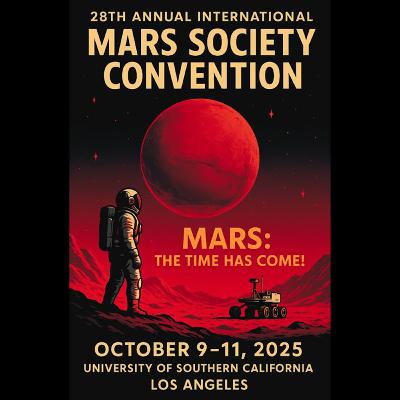
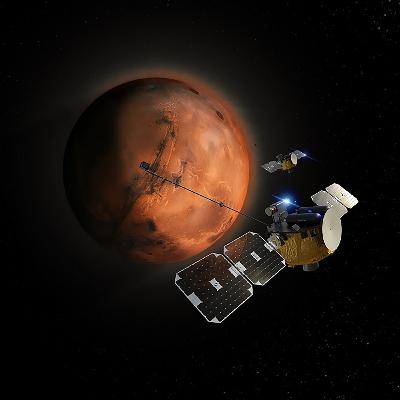

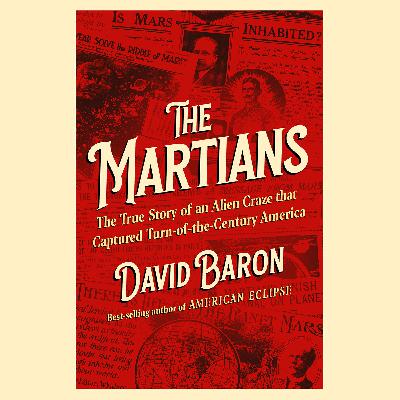
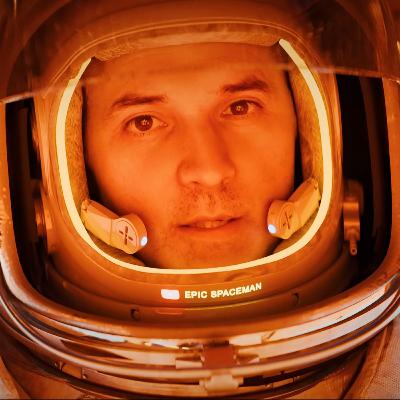

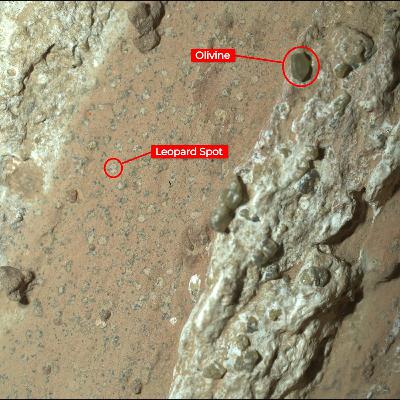
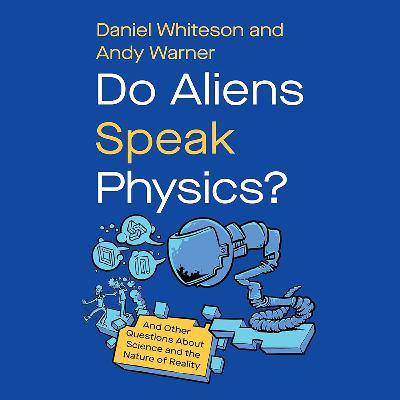
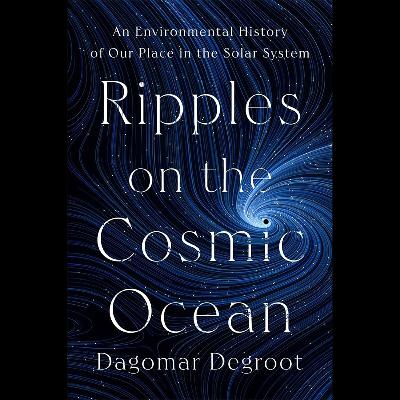
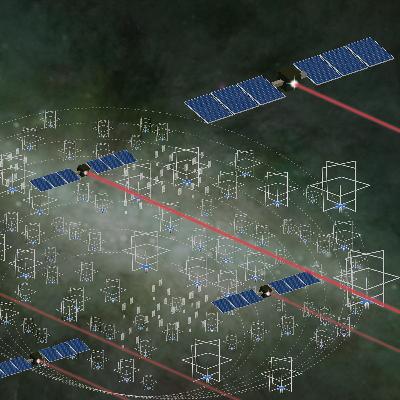
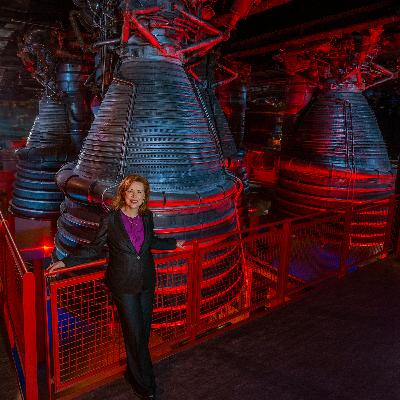

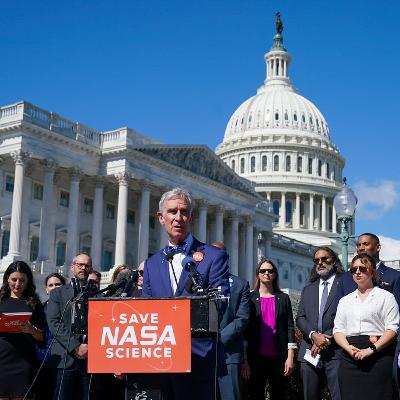
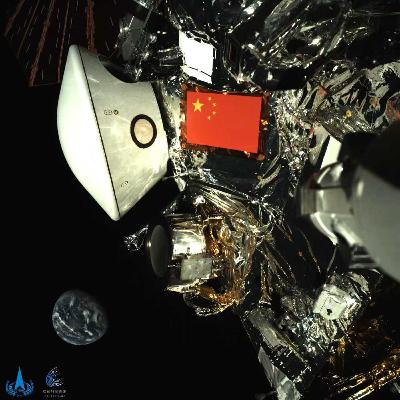
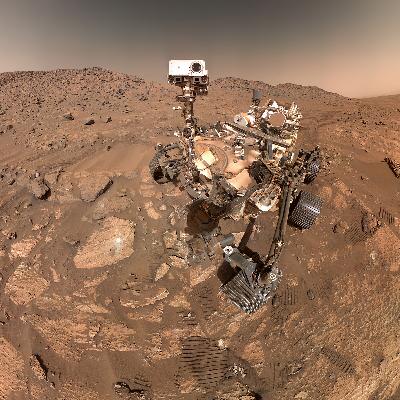


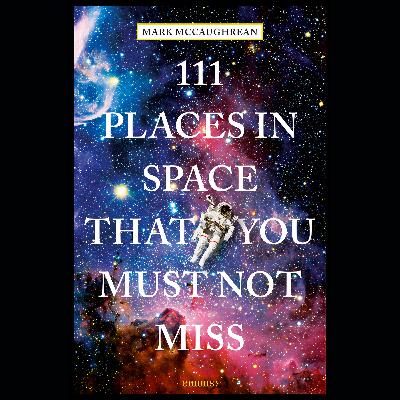
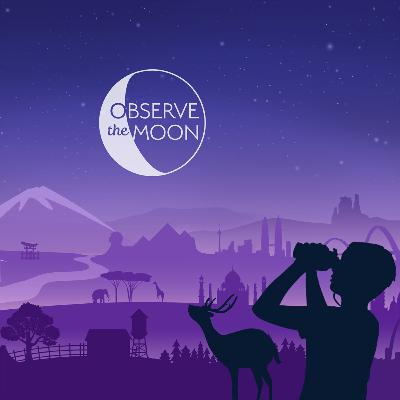
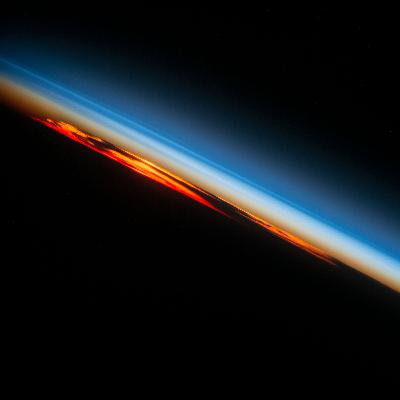



love it 😍
Why is China not concerned about global warming? ...Because they already have a communist government. The American people have spoken. NASA, like the overwhelming majority of effete academia, is out of touch, and the reckoning has arrived.
great conversation!
A great show if you're interested in space or science.
Fantastic show about everything space. Superbly presented by Mat Kaplan, highly informative and great guests who are at the cutting edge of their fields. Have been listening for 3 years and look forward to each new episode.
Great show, listen every week, love the detailed discussion with the Project Leads on space missions.
this was a frustrating episode to listen to. Of course space policy is not partisan, but one party had a role in cynically calling the recent election into question and one didn't. The storming of the capitol didn't happen in a vacuum and it's ignorant to speak about it as if it did.
great content and Matt is as fabulous as ever. Guest had a very tinny VOIP.
Congrats to Lightsail2 and Planetary Society!
Just started about a year ago to listen during my commute. Convenient way to get updated with space related news. Matt is doing great job at keeping it fun and diverse and the rest of the team is just awesome. Excellent job!
Every episode has something interesting to learn. I have been listening for.over 10 years. It is highly recommended.
nice show Matt as ever, but your first guest needed to use a higher quality microphone.
I swear to our Lord and Savior you dragged that light sail on us the past 3 years and i am out.
good lord enough about the light sail.. lol
Bill Nye is sure taking advantage of Friedman being gone. Nye doesn't have much for credibility. From what I've read he's a dressed up third grade science teacher, not a scientist at all. Has he written any papers? Done any field revolutionizing work? Nope. Ask deGrasse Tyson what he thinks of Bill Nye. lmao
Bill Nye is an actor not a scientist. a propagandist describes him better.
Great study.
This is a very informative podcast, thank you and keep up the good work!!